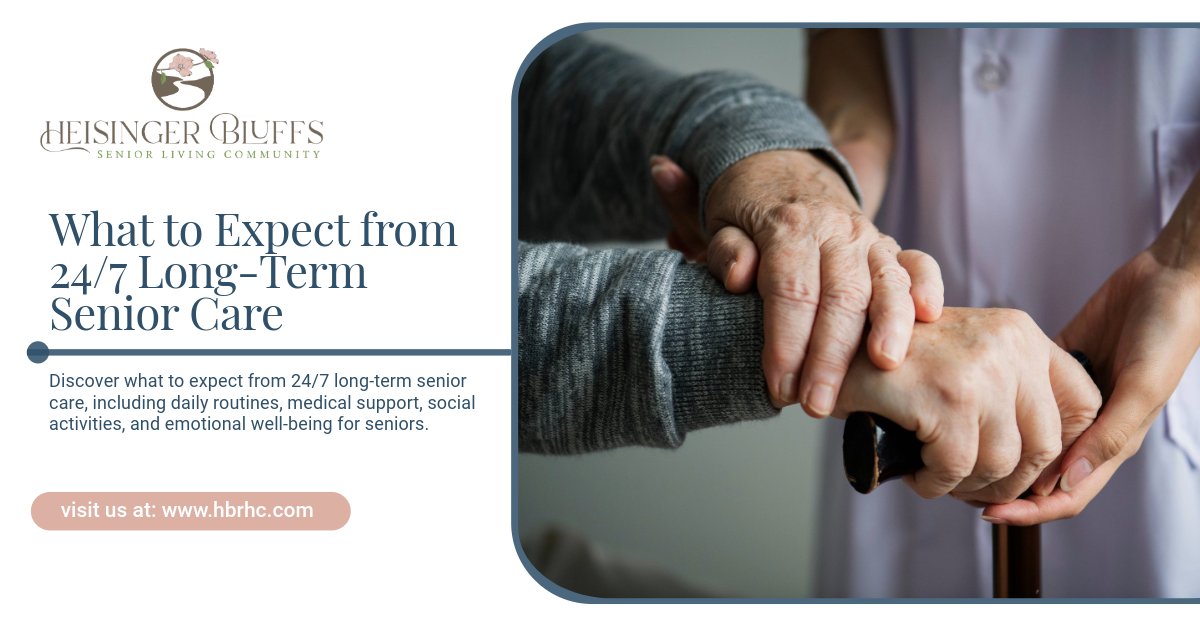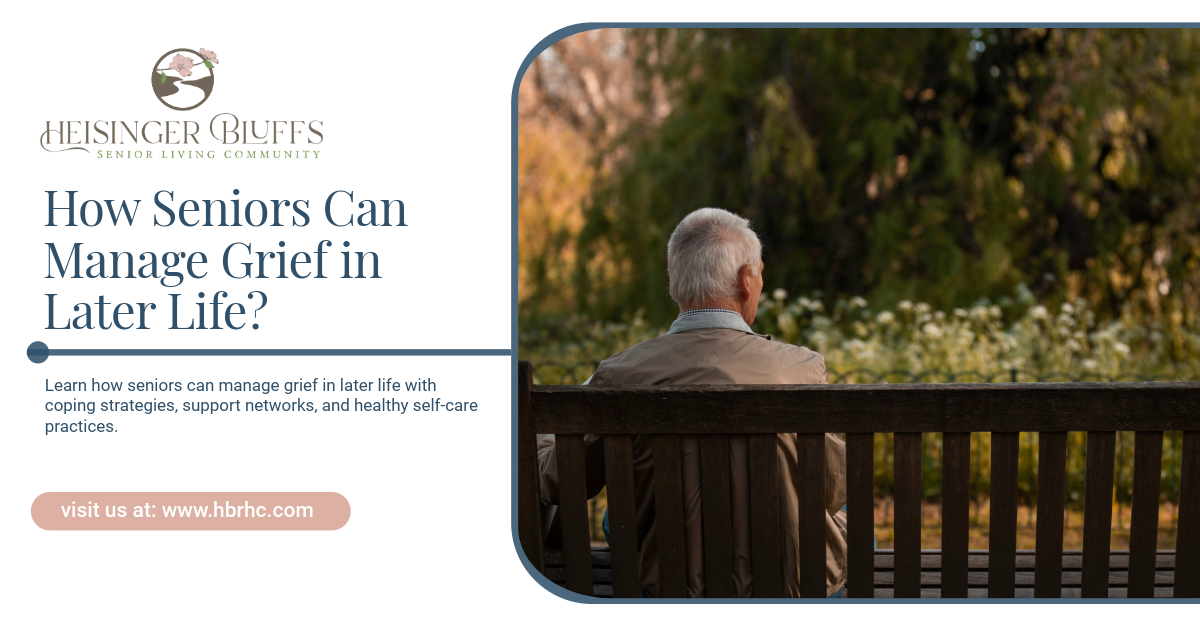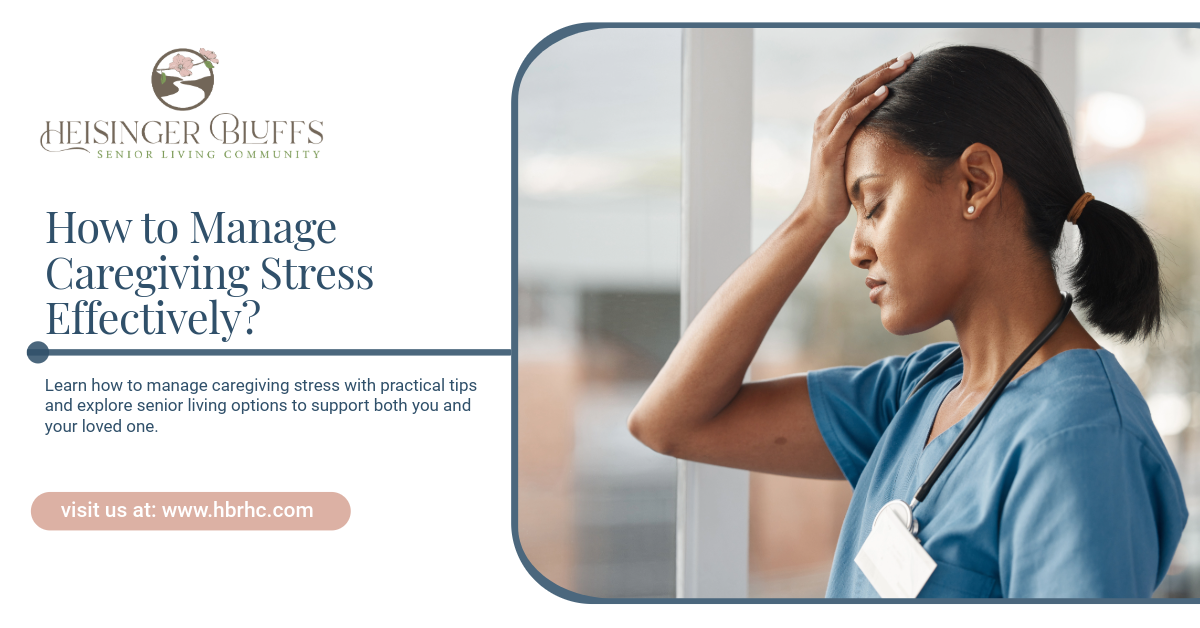What to Expect from 24/7 Long-Term Senior Care

Caring for a loved one who needs full-time assistance can be both challenging and emotional. Long-term senior care offers a structured environment where seniors receive continuous support, helping them maintain comfort, health, and quality of life. If you’re considering long-term care for yourself or a family member, understanding what to expect can help ease the transition.
Understanding 24/7 Long-Term Senior Care
Long-term senior care, often provided in assisted living or skilled nursing facilities, is designed for seniors who require continuous supervision and assistance with daily activities. Unlike short-term rehabilitation, long-term care focuses on ongoing support for chronic conditions, age-related limitations, and overall well-being.
Key Components of 24/7 Senior Care
1. Medical and Health Support
Seniors in long-term care have access to healthcare professionals around the clock. This can include:
- Registered nurses (RNs) and licensed practical nurses (LPNs)
- Certified nursing assistants (CNAs)
- On-call doctors for emergencies
- Medication management and monitoring
Continuous health support ensures chronic conditions, such as diabetes, heart disease, or arthritis, are properly managed, reducing hospital visits and improving quality of life.
2. Personal Care Assistance
One of the most significant aspects of long-term care is help with daily living activities. Caregivers can assist with:
- Bathing and grooming
- Dressing and mobility
- Toileting and incontinence care
- Meal preparation and feeding
Care is tailored to each resident’s abilities, promoting independence where possible while ensuring safety.
3. Safety and Supervision
Long-term care communities are designed with safety in mind. Common features include:
- Emergency call systems in rooms
- Fall prevention measures
- 24/7 monitoring in common areas
- Secure entrances to prevent wandering
These measures provide peace of mind for families and create a secure environment for residents.
4. Social and Recreational Activities
Maintaining social engagement is vital for seniors’ emotional and cognitive health. Long-term care facilities typically offer:
- Exercise and fitness programs
- Arts and crafts activities
- Group outings and events
- Educational and hobby clubs
Structured social opportunities help residents build connections and combat feelings of isolation.
5. Nutrition and Dining
Balanced nutrition is essential for seniors, and long-term care facilities provide:
- Nutritious meals tailored to dietary needs
- Assistance with eating if required
- Flexible dining options to accommodate preferences
Meals are often designed by dietitians to support medical conditions and overall health.
Typical Daily Routine in 24/7 Long-Term Care
While schedules can vary depending on the facility and individual needs, most residents experience a structured routine that balances care, recreation, and rest. Here’s a sample daily schedule:
| Time | Activity | Notes |
|---|---|---|
| 7:00 AM | Wake-up & Morning Hygiene | Assistance with bathing and dressing if needed |
| 8:00 AM | Breakfast | Dietitian-approved meals |
| 9:00 AM | Exercise or Physical Therapy | Light stretches, walking, or guided therapy |
| 10:00 AM | Social Activities or Hobbies | Games, crafts, reading groups |
| 12:00 PM | Lunch | Nutritious and tailored to dietary needs |
| 1:00 PM | Rest or Quiet Time | Optional napping |
| 2:00 PM | Medical Checks & Medication Administration | Nurse or CNA visits |
| 3:00 PM | Recreational Programs | Music therapy, educational classes |
| 5:00 PM | Dinner | Assistance provided as needed |
| 6:00 PM | Evening Activities | Social hour, relaxation, or light TV |
| 8:00 PM | Nighttime Hygiene & Bedtime Preparation | Assistance with toileting and grooming |
| 10:00 PM | Lights Out | 24/7 supervision remains active |
Benefits of 24/7 Long-Term Senior Care
Investing in long-term care provides multiple benefits for both seniors and their families:
- Peace of Mind: Knowing your loved one is monitored and cared for around the clock reduces stress for families.
- Personalized Care Plans: Care plans are customized to meet each resident’s physical, mental, and emotional needs.
- Improved Health Outcomes: Continuous health monitoring can catch potential issues early, reducing hospitalizations.
- Enhanced Socialization: Structured social programs prevent loneliness and encourage community engagement.
- Support for Families: Caregivers can focus on their relationship with their loved one without managing daily care tasks.
Choosing the Right Long-Term Care Facility
When selecting a facility for 24/7 senior care, consider the following:
- Staff Qualifications: Ensure the staff includes licensed nurses, trained caregivers, and on-site medical professionals.
- Facility Accreditation: Look for state licensing and accreditation from recognized senior care organizations.
- Care Philosophy: Ask how they personalize care, encourage independence, and handle emergencies.
- Amenities and Activities: Evaluate the quality of recreational, social, and therapeutic programs.
- Family Involvement: Choose a facility that encourages family visits and involvement in care planning.
Emotional and Mental Health Support
Long-term care is not just about physical health; emotional and mental well-being are equally important. Facilities often provide:
- Counseling and therapy sessions
- Memory care programs for residents with dementia or Alzheimer’s
- Opportunities for spiritual engagement
- Peer support groups and community events
These programs help residents maintain dignity, purpose, and a sense of belonging.
Myths About 24/7 Long-Term Senior Care
There are many misconceptions about long-term care. Here are a few common myths:
- Myth: Seniors lose independence in long-term care.
Fact: Facilities encourage independence while providing support where needed. - Myth: Long-term care is only for the very ill.
Fact: Many residents are active but benefit from daily assistance and social engagement. - Myth: Care is impersonal.
Fact: Staff are trained to build personal relationships and provide individualized care
Final Thoughts
Choosing 24/7 long-term senior care is a significant decision. For families seeking a supportive and caring environment, Heisinger Bluffs offers dedicated staff, comprehensive medical support, and enriching programs to help seniors thrive. Contact us today!
Frequently Asked Questions
What types of medical support are available in long-term care?
Residents have access to nurses, on-call doctors, medication management, and emergency support.
Can seniors maintain independence in long-term care?
Yes, personalized care plans allow seniors to stay as independent as possible while receiving assistance when needed.
Are social activities included in long-term care?
Absolutely. Facilities provide a wide range of recreational, educational, and therapeutic activities.
How do long-term care facilities handle emergencies?
Most facilities have 24/7 monitoring, emergency call systems, and trained staff to respond promptly.
How can families stay involved?
Families are encouraged to visit, participate in care planning, and communicate regularly with staff.
Sources:
- https://www.ncoa.org/article/the-top-10-most-common-chronic-conditions-in-older-adults/
- https://www.aplaceformom.com/caregiver-resources/articles/adls-iadls
- https://pmc.ncbi.nlm.nih.gov/articles/PMC6969951/
- https://medlineplus.gov/nutritionforolderadults.html
- https://www.who.int/news-room/fact-sheets/detail/mental-health-of-older-adults











